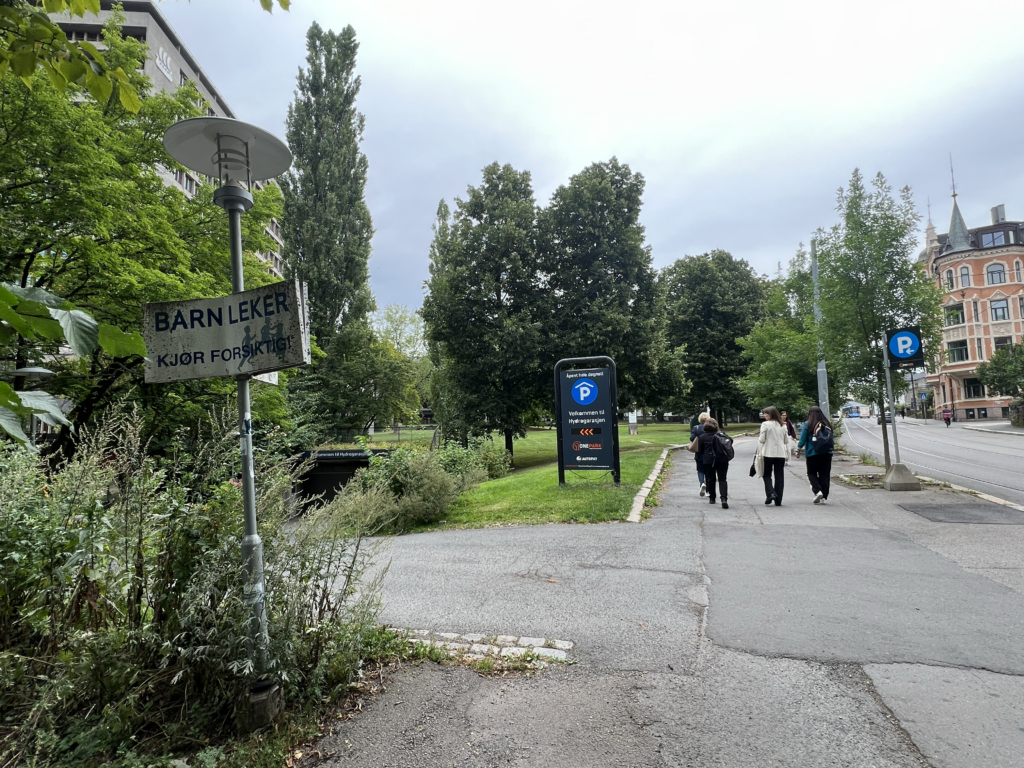“Without educated people, there will be no Ukraine”
Amid war and displacement, Ukraine is reforming its early childhood education system to bring children back into kindergartens. What lessons can be drawn from the Norwegian model — and how are Ukrainian teachers supporting one another through the turmoil of war?
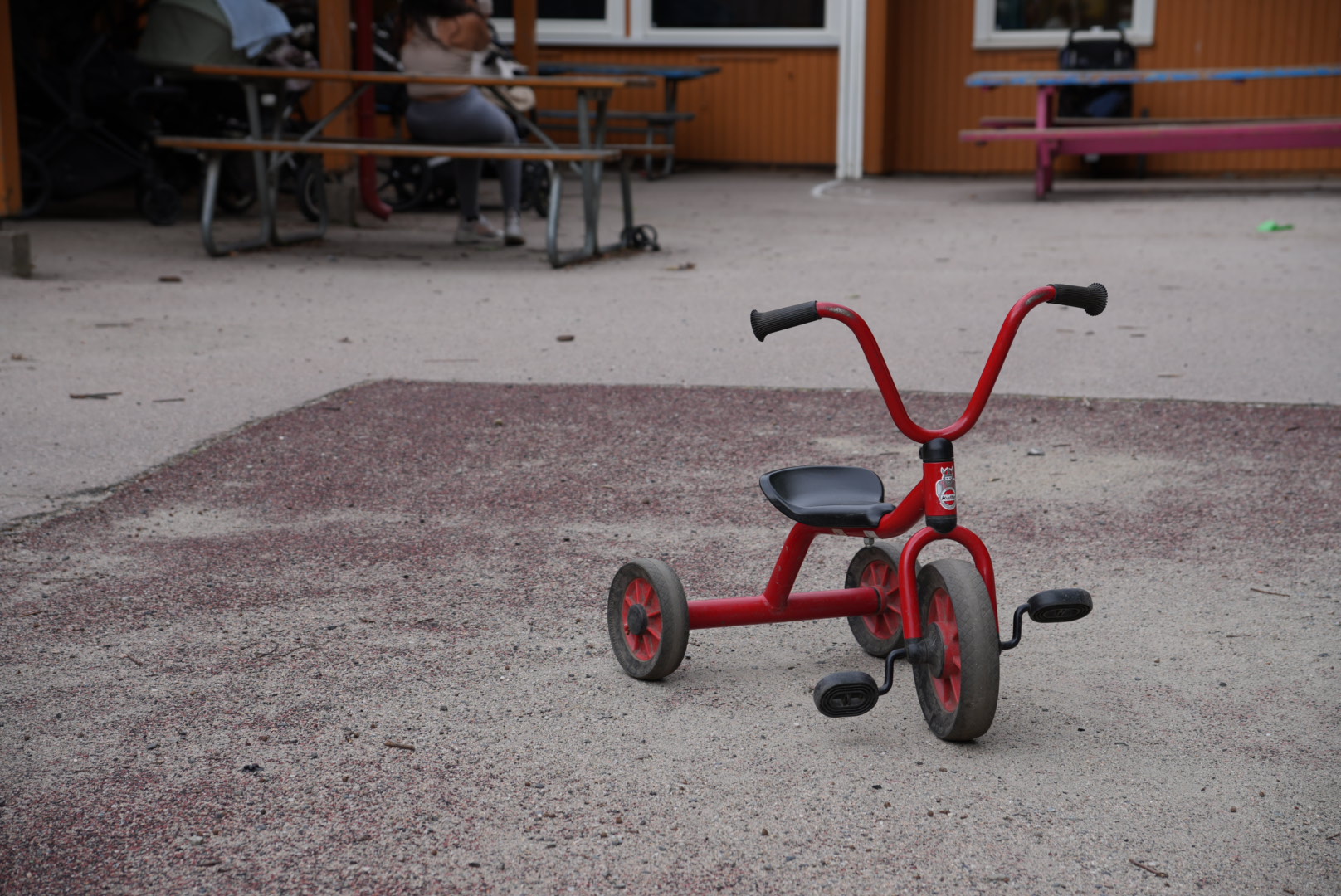
In the middle of a meeting with the Norwegian Agency for Development Cooperation (NORAD), Anastasiia Konovalova’s phone suddenly rings.
The Deputy Minister of Education and Science in Ukraine has been invited to Norway by the European Wergeland Centre to discuss Ukraine’s new kindergarten reform and to learn from the Norwegian early childhood education model.
Since 2021, pre-school education has been a key focus area for the Wergeland Centre’s long running “Schools for Democracy” programme, financed by NORAD’s Nansen Support Programme for Ukraine. Russia’s full-scale invasion has made the task of strengthening early childhood development all the more urgent. In a country at war, even a simple phone call may bring terrible news.
When she rejoins the meeting, Konovalova smiles softly.
“It’s okay. Everyone is alive.”
This time, her fears were unfounded.
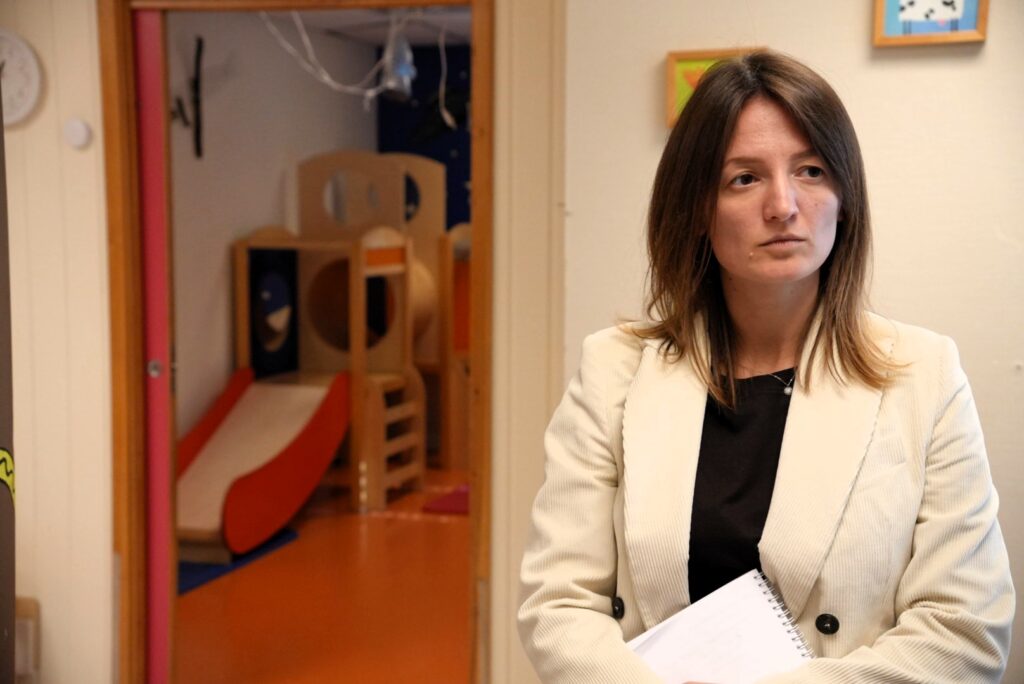
Worrying Signs of Developmental Delays
Deputy Minister Konovalova is responsible for inclusion in education, ensuring that vulnerable groups such as veterans and national minorities have access to learning opportunities. But she admits that Ukraine’s most vulnerable group is also its smallest: its children.
Ukrainian children have borne a devastating share of Russia’s aggression. An unknown number have been killed in airstrikes and shelling. Many have been abducted, displaced, or left in occupied territories. Those who remain in government-controlled areas have often little chance to socialise with peers.
A lack of bomb shelters force children to stay home and connect with teachers and classmates through their parents’ phones.
PHOTO: Rasal Hague
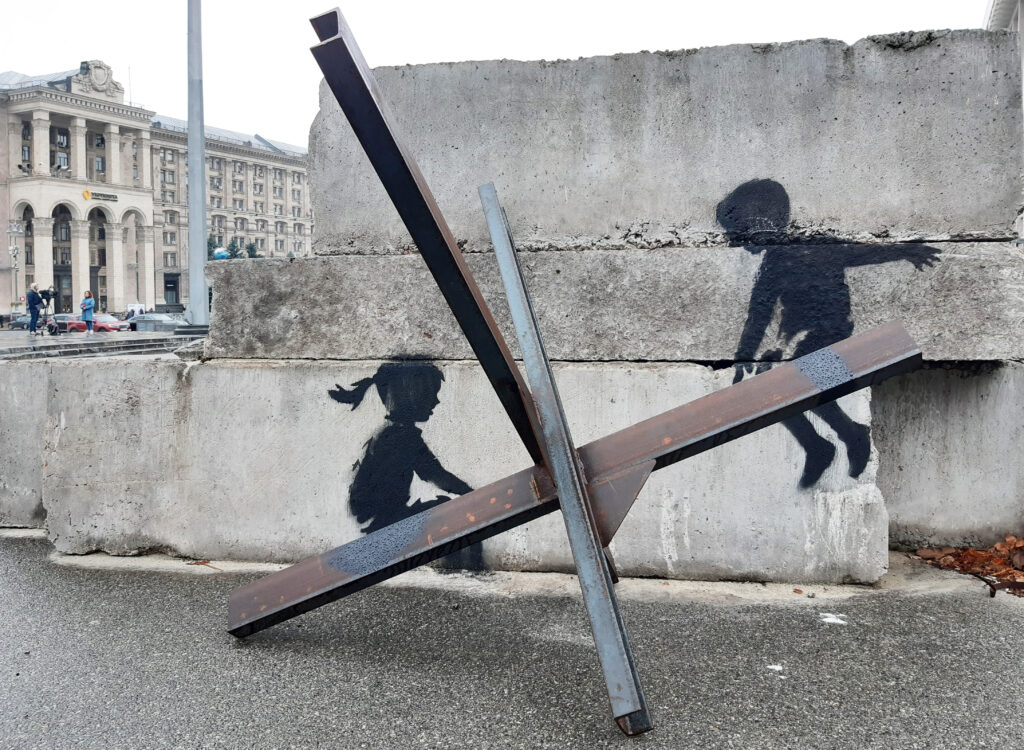
“Many Ukrainian children suffer from developmental delays when it comes to social and cognitive learning,” says Konovalova, “They cannot communicate or regulate their emotions. They don’t sleep at night — and neither do their parents.”
Russia’s invasion has also wreaked havoc on the Ukrainian economy. According to the Kyiv School of Economics, Ukraine has lost more than €1 trillion in human capital, investment, and infrastructure since the full-scale invasion.
“Your support is very important for us,” Konovalova tells Jorun Nossum, Director of the Nansen Programme. “You pay for our teachers’ salaries, and without educated people, there will be no Ukraine.”
Read also: Meeting the Urgent Need of Ukrainian Schools
Reforming a Soviet Legacy
Ukraine inherited a cumbersome and costly kindergarten model from the Soviet period.
“We are going through a very painful but necessary reform,” explains Konovalova. “Teachers are covering the shortfall with drastically reduced salaries. We need to understand where to cut without destroying the quality. We must also get children back into kindergarten and parents back to work. We need to move beyond just survival.”
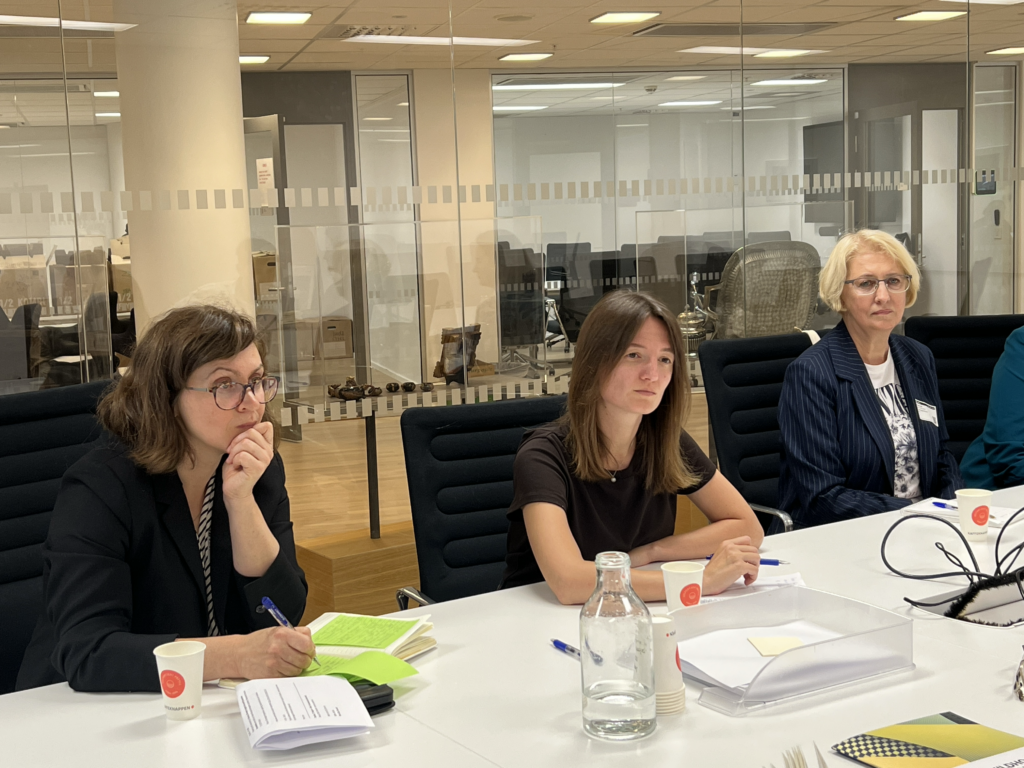
Konovalova’s smile hardly leaves her face as the Wergeland Centre takes her on a tour of three Norwegian kindergartens. Her enthusiasm is unmistakable, as she observes everything closely, asking the kindergarten staff question after question.
Read also: The Ukrainian Success Story Continues
“It is like a parallel world!” she exclaims during a visit to the SiO kindergarten at OsloMet.
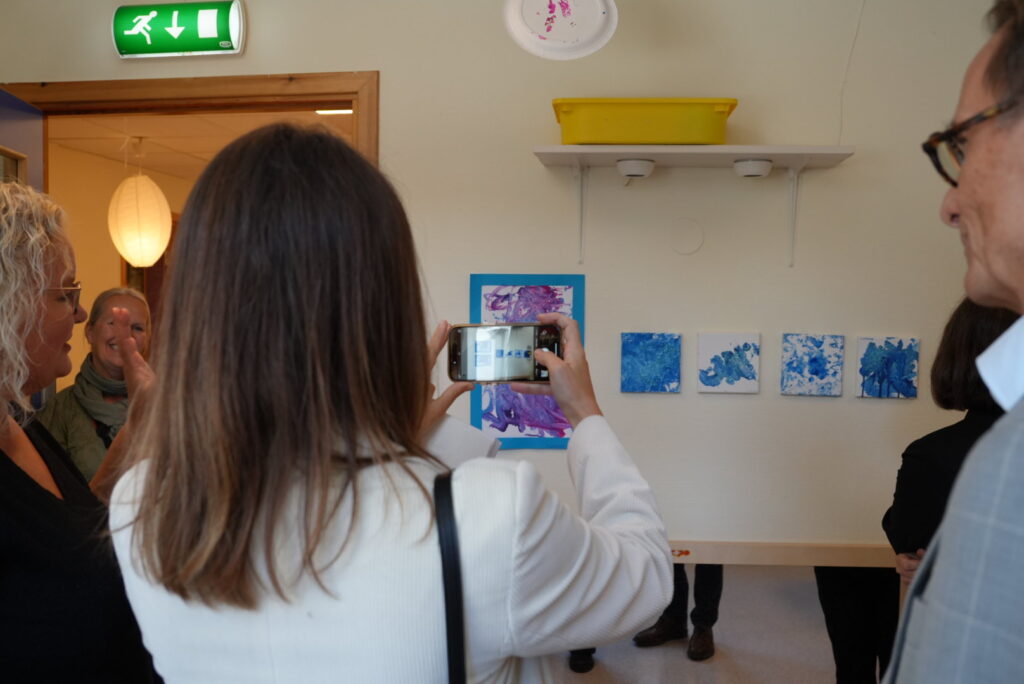
She marvels at children’s drawings on the wall, the simple yet functional facilities and the freedom children have to play and explore. Her eyes widen as she learns about the spartan food served at mealtime and the fieldtrips, which even the smallest children are expected to join.
Happy to bring many elements of the Norwegian model back home, there are some aspects that are not so easily transferable:
“Imagine if our children were sleeping outside in strollers! The adults would have to take them up and down to the shelter several times a day. Today my child has been in the shelter two times already,” says Konovalova when she sees children sleeping on the kindergarten porch.
Building Resilience and Democracy from Early Childhood
Strengthening the kindergarten sector and supporting capacity building among pre-school teachers are central goals of the Wergeland Centre’s work in Ukraine.
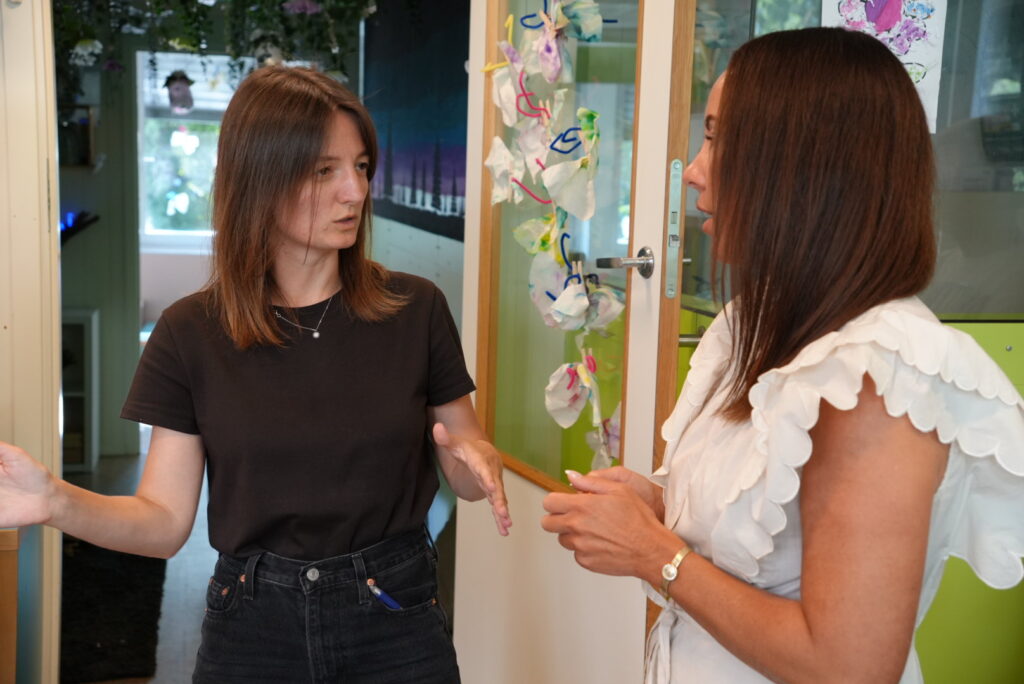
As the Ukrainian government is trying to stem the worrying decline in childhood development by building flexible, mobile kindergartens, the Centre continues to provide teachers and administrators with psychological tools and democratic education resources. The aim is not only to help children cope with war trauma, but also to prepare them to become active citizens in a democratic Ukraine in the future.
Through online courses and in-person trainings, preschool teachers learn about how to develop democratic competences based on the Council of Europe’s Reference Framework of Competences for Democratic Culture (RFCDC) since early childhood. As the war entering its 4th year, preschool teachers also need support on managing stress and regulating their own feelings, support children emotionally, and teach them how to live in peace with themselves, their peers and the nature around them.
So far, the Wergeland Centre has received over 10 000 applications to join its various courses, hosted on the EWC e-learning platform.
Graduates join a thriving Wergeland alumni network, which now sports about 1,000 members. Every Thursday, they meet online to share experiences, discuss challenges, and offer each other support — often in cozy, informal settings, with many joining in home clothes or pyjamas, tea in hand.
Read also: Let’s Talk about Kindergarten
“You can read a lot, but you can never learn how another teacher coped with a particular challenge,” says Olesia Shelest, trainer with the “Schools for Democracy” programme to Nova ukrainska shkola.
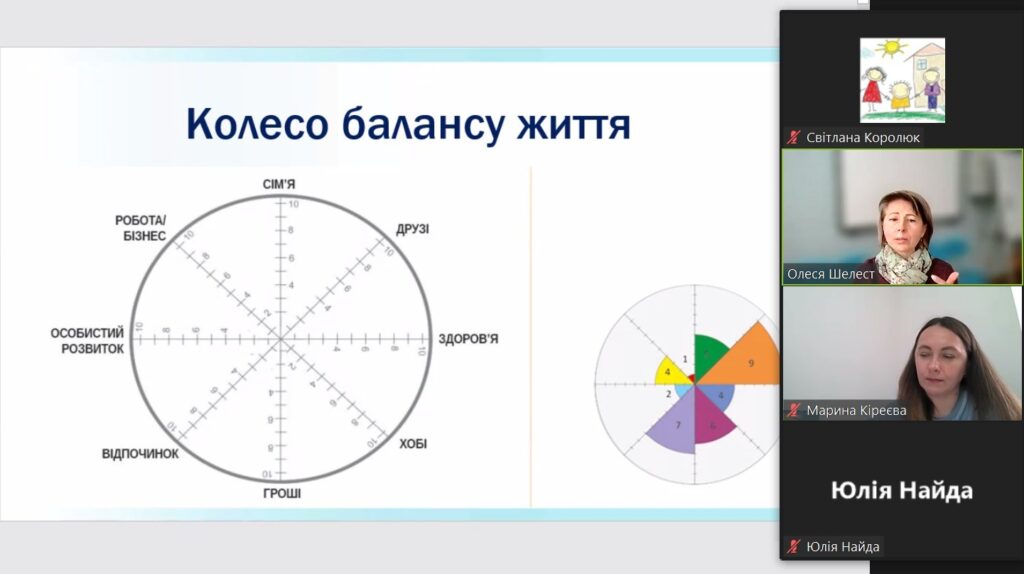
Teaching through Turmoil
One such teacher is Natalia Kosenko, from Lysychansk who has been displaced twice due to the war. Now a member of the alumni network, she continues to teach remotely for a kindergarten located in occupied territory.
“All the children are scattered across Ukraine and abroad. The hardest part is talking about home. Once a girl cried because her mother promised they would return to Lysychansk in the autumn – but they couldn’t. I had to help her find meaning in life in a new place,” she says.
Kosenko says the courses have given her invaluable tools for managing trauma and emotional outbursts — and a strong professional community to lean on.
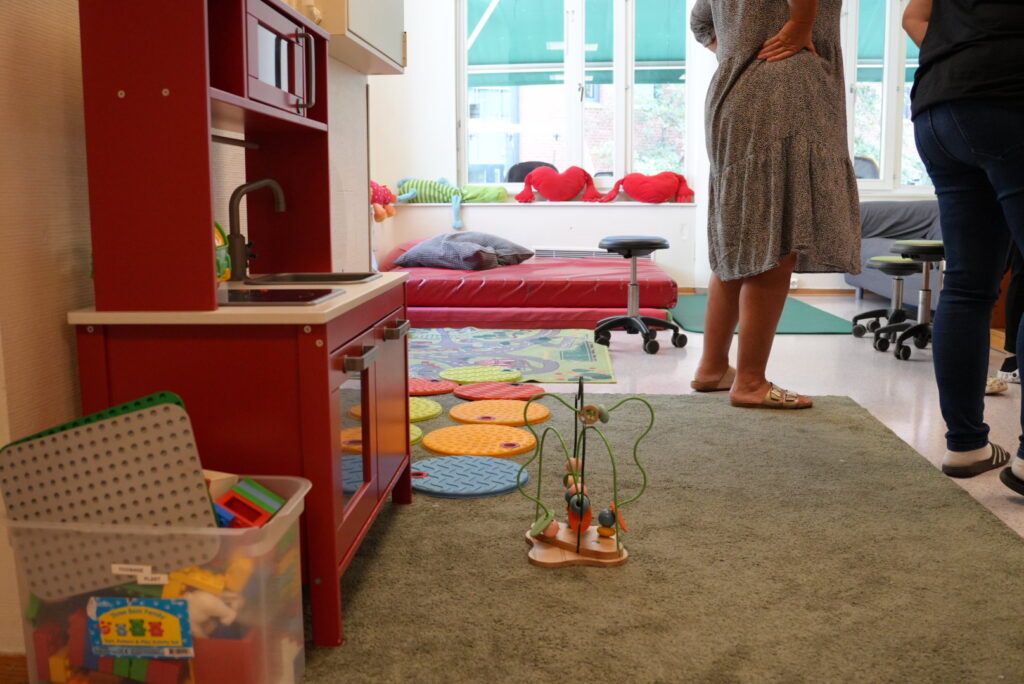
Marta Melnykevych-Chorna, Advisor and Coordinator of the Wergeland Centre’s preschool component, is both pleased and impressed with the dedicated pre-school teachers in Ukraine.
“We started working with preschool education because we believe it is vital to nurture democratic culture and values from early childhood. We are delighted that this initiative has attracted the interest of so many people,” she says in an interview with Vchysya Media, while hoping that other organisations will build similar networks.
“This Is How Our Children Learn What Democracy Is”
“We are all very, very tired,” Deputy Minister Konovalova smiles faintly. “Every night when I take my child to the bomb shelter, there is this question: ‘Why again?’ And you must answer: ‘They want to kill us because we don’t want to obey their rules. We want to decide for ourselves and live in our homes.’ And that is why we’re fighting now. Every mother, every teacher in kindergarten is answering this question. And this is how our children learn what democracy is.”
However, the support of the outside world and the professionalism of the pre-school teachers back home, provide Konovalova with hope:
“When the war is over and children are be able to return, we will have this unique opportunity of very highly educated children from very different backgrounds and cultures to help rebuild the country. I want to invite you to Ukraine so you can see how our kindergartens have transformed,” she smiles.
The “Schools for Democracy” Programme is implemented by the European Wergeland Centre in cooperation with the Ministry of Education and Science of Ukraine, Center of Education Initiatives (Lviv), Step by Step Foundation Ukraine (Kyiv), SavED (Kyiv) and Step by Step Moldova (Chisinau). The programme is funded by the Nansen Support Programme for Ukraine. The Nansen Programme belongs to the Norwegian Agency for Development Cooperation (NORAD).
